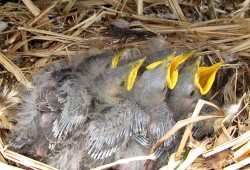Flight Behavior, by Barbara Kingsolver
In most of her novels, Barbara Kingsolver explores the intersections of people, culture, and the natural world. In Flight Behavior, the main issue is climate change and its potential impact on the environment and the creatures living there. She also works in dysfunctional families, educational bungling, xenophobia, non-investigative news media, poverty vs. comfort, environmentalists vs. opportunists, superficial religiosity vs. internalization of religious precepts, and more. Kingsolver’s way with words and her insights into human character enhance the story line(s) delightfully.
The action is set in present-day rural Appalachia, where the protagonist Dellarobia Turnbow lives with her husband and two children on a failing farm. An (otherwise) intelligent young woman, Dellarobia got pregnant and married at seventeen; for the ensuing ten years she has entertained fantasies of flight. As the novel opens, she is heading into the nearby hills for a tryst with a potential lover, but is waylaid by a vision of the forest aflame without being consumed (she left her glasses at home), and returns home. Gradually, the “fire” is recognized as a large colony of monarch butterflies hundreds of miles off course and out of season. As the news leaks out to her family, church, town, and the larger world, everyone has an opinion of what this means and how to deal -or not- with it. Dellarobia’s horizons are greatly expanded by her contact with the scientists, journalists, migrant workers, amateur environmentalists, and curiosity seekers attracted by the monarch phenomenon.
The preconceived assumptions of the community and the various outsiders lead to interesting and conflicting interactions. Among the migrant workers (“foreigners”), for instance, is a Mexican family that used to guide tourists through their hometown, a wintering place for monarchs for centuries which was wiped out in a giant mudslide a few years ago. Looked down on by the community, the family’s knowledge gets recognition from Dellarobia and the scientists who come to study the monarchs. The cash-strapped Turbow in-laws, who own the forest where the monarchs have roosted, want to clear-cut the area for the money; the thought of charging tourists gives them second thoughts. “Sophisticated” TV crews try to catch locals being stupid.
In the course of the novel, by engaging a wide spectrum of individuals and groups, Dellarobia acquires the self-confidence for creating a richer future for herself. Her first non-waitressing job is for the scientists, collecting and measuring data and recording it. Her salary allows her for the first time to buy a few extras. Her piqued curiosity not only pushes her to learn more, but ignites her son’s scientific curiosity. Of course, this means that her whole life changes in unexpected ways; the novel’s climax (no, I won’t give it away) underscores that. A good read!
Reviewed by Frannie Blair



